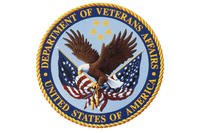An allotment is a designated amount of money that is automatically distributed for you, from your pay. You can have allotments sent to bank accounts, insurance companies and more.
There are many reasons to have an allotment, including setting aside funds for family, paying off a loan from the military, or paying for your life insurance premiums. The following summarizes what you need to know about allotments:
There are two types of allotments: discretionary and non-discretionary. You can have up to six discretionary allotments per month, and any number of non-discretionary allotments, as long as the total allotments per month is 15 or less.
Your allotment is evenly divided between your semimonthly paychecks. For example: If you have an allotment of $100 it will reduce your take-home pay on both the 1st and 15th by $50.
All active duty service members, midshipmen, cadets, and active reservists are eligible to make allotments from their pay. In addition, to help servicemembers transition from active duty to retired status, retirees are eligible to continue all existing authorized allotments.
Discretionary Allotments
A discretionary allotment is a voluntary allotment that is setup by a member and may be stopped, started or adjusted at will. Members are authorized no more than six discretionary allotments.
Examples include, but are not restricted to, the following:
- Payment of premiums for commercial life insurance on the member, the member's spouse or children.
- Eligible allotters are:
- U.S. Government Life Insurance and National Service Life Insurance
- Commercial insurers
- Navy Mutual Aid
- Eligible allotters are:
- Voluntary payment to a dependent or other relatives.
- Deposits to a financial institution, mutual fund company, or investment firm.
- Payment of mortgage or rent.
- Deposits into the DoD Savings Deposit Program.
- Payments to the Air Force Enlisted Members Widow's Home for Air Force members only.
Non-Discretionary Allotments
Non-discretionary allotments may be voluntary or involuntary and they cannot be started or stopped at the member's will. Non-discretionary allotments of military pay and allowances by members in active military service are limited to the following:
- Purchase of U.S. savings bonds
- The purchase of U.S. savings bonds is by Class B allotment. One year bond purchases cannot exceed $15,000. Series EE and I bonds are available for purchase.
- Relief Repayments
- Repayment of loans to the Army Emergency Relief, Navy and Marine Corps Relief Society, Air Force Aid Society, and American Red Cross.
- Government Indebtedness
- Voluntary liquidation of indebtedness to the U.S. including those incurred due to defaulted notes insured by the FHA or guaranteed by the VA or payment of amounts due under the Retired Serviceman’s Family Protection Plan.
- Any other indebtedness to any department or agency of the U.S. Government (except to the military departments that pays the member).
- Any repayment of debts owed to an organization for funds administered on behalf of the U.S. Government and any such debts assigned to a collection agency.
- Charity
- Members are authorized to make charitable contributions by allotment to the Army Emergency Relief, Navy and Marine Corps Relief Society, or affiliates of the Air Force Assistance Fund.
- Child and Spousal Support
- When the member on extended active duty has failed to make support payments, a cognizant DFAS site with proper notification will start a statutorily-required child or child and spousal support allotment from the members pay and allowance.
- Assistance Funds
- The Post-Vietnam Era Veteran's Educational Assistance Program provides education assistance on a contributory basis to those eligible members entering the Armed Forces on or after January 1, 1977, and before July 1, 1985, who might otherwise be unable to obtain a higher education.
- Debts for Non-Discretionary Allotments
- Payment of delinquent federal, state or local income or employment taxes.
- Commercial Debt -When a member fails to pay debts owed to a commercial creditor, the creditor can make application for recovery of this debt.
- Delinquent Travel Charge Card Debt -When a member fails to pay debts due on their charge card, the heads of agencies have authority, upon written request of a federal contractor, to collect the debt.
Restrictions:
- Minors – Allotments (except bonds) are not made payable to children under 16.
- Mentally Incompetent Persons – Appointed guardians or the institution can receive an allotment where the mentally incompetent person is confined.
- Power of Attorney – A general power of attorney is not allowed to establish, change or stop an allotment. A member must specifically designate a special power of attorney to make changes to allotments.
- Member Awaiting Trial by Court-Martial – Members cannot register allotments between the date that a court-martial is ordered and the date of the approval or disapproval of the sentence. Standing allotments are discontinued when it is necessary to permit the collection of the forfeiture in the monthly amount specified and the time limitation stated by the court-martial, or if the member is sentenced to forfeit all pay and allowances. Prisoners are able to register allotments if the amount of the pay and allowances not forfeited is sufficient to cover the deductions.
- Returned Absentee, Deserter, and Prisoner – Allotments are not registered for a returned absentee or deserter unless DFAS has verified the member’s pay status.
- Fraudulent Enlistment – Pay and allowances are not allotted when pay is suspended pending final action on determination of fraudulent enlistment.
- Reduced Pay of Allotter – Allotments are discontinued when a reduction in grade or stoppage of pay does not leave sufficient funds for allotments in force.
- You cannot have discretionary allotments to purchase, lease, or rent personal property. Personal property includes vehicles, appliance, household goods, electronics, and all other consumer items that are tangible and movable.
If you have an allotment question or problem, you should visit your local pay office with the question first. If your pay office can't resolve the problem, it should officially refer your question to DFAS.
Keep Up With Military Pay Updates
Military pay benefits are constantly changing. Make sure you're up-to-date with everything you've earned. Subscribe to Military.com to receive updates on all of your military pay and benefits, delivered directly to your inbox.












